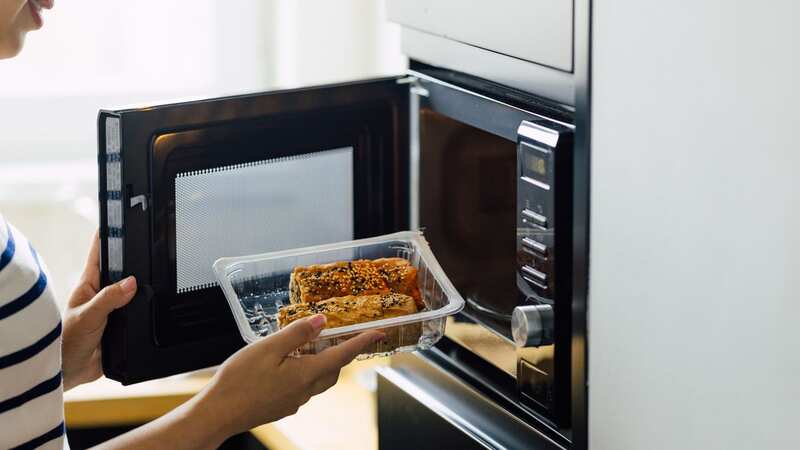Doctor says you should never use plastic takeaway containers in microwaves
Most of us do it - pop leftovers in old takeaway containers and heat them up for next day's lunch.
The quickest way to get it hot is by popping them into the microwave. But one stomach doctor thinks this isn't a good idea. Specialist Doctor Saurabh Sethi used Tiktok to share issues with using the microwave particularly what you use to hold the food you're warming up.
Telling his more than 330,000 fans, the Harvard-trained doctor explained microwaving is good because it keeps nutrients well. He said: "Studies suggest that microwaving retains the nutrients well, often better than methods like frying." But using plastic can be risky, Dr Sethi revealed: "Now here is the most important tip. Many plastics contain hormone-disrupting compounds like BPA, which can contaminate your food when heated."
"Never microwave a plastic container. Use glass instead." BPA is also called bisphenol A and messes with important hormones. People are now worried about how BPA might affect the brain and prostate gland of unborn babies, little ones and kids. Research has also suggested BPA might increase blood pressure, cause type 2 diabetes and heart problems.
Dr Sheela Sathyanarayana, a paediatrics professor at the University of Washington, told Science Line: "There have been several experiments that heating liquids or foods in plastics that contain these chemicals will certainly increase your exposure to them. And so that's why we don't recommend putting plastics in the microwave. We don't recommend putting them in the dishwasher because it makes them degrade."
 Dad furious after boy, 6, orders over $1,000 of takeaways while his mum is out
Dad furious after boy, 6, orders over $1,000 of takeaways while his mum is out
Which? has researched how microwaving plastics with Bisphenol-A (BPA), a chemical for making clear, hard plastic, might make bad chemicals go into food, reports Wales Online. But does this mean that all BPA-free plastics are safe to use in the microwave? Which? explained: "Even if a plastic doesn't contain BPA, it could still be unsuitable for microwave use. This could be because it isn't designed to withstand high temperatures, or because it contains phthalates (another type of hormone-disrupting chemical which, like BPA, can be transferred to food during the cooking process)."
Dr Ravinder Anand-Ivell, an endocrinology and reproductive physiology associate professor at the University of Nottingham, said: "From a scientific standpoint, there is no such thing as a "safe" level of contamination." Dr Anand-Ivell also cautions that the danger of chemicals leaking might rise each time a container is heated.
This could be problematic if you frequently reuse takeaway containers. Therefore, it's wise to use containers that are free from both BPA and phthalates and are clearly labelled as microwave-safe. If you want to be extra careful, the Food Packaging Forum advises not to microwave any kind of plastic.
Read more similar news:
Comments:
comments powered by Disqus


































